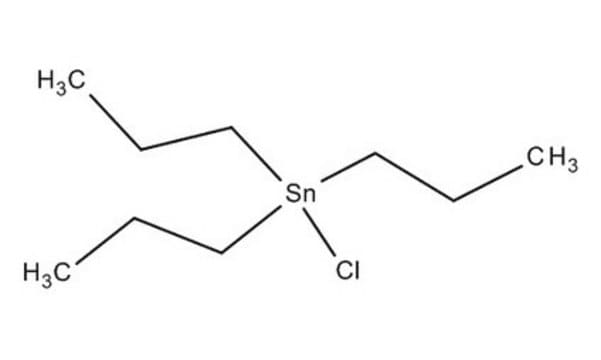41062
Sodium tetrapropylborate
for GC derivatization, LiChropur™, ≥85.0% (T)
Synonyme(s) :
NaBPr4
About This Item
Produits recommandés
Qualité
for GC derivatization
LiChropur™
Niveau de qualité
Pureté
≥85.0% (T)
Forme
solid
Pertinence de la réaction
reagent type: catalyst
core: boron
reagent type: derivatization reagent
reaction type: Alkylations
Technique(s)
gas chromatography (GC): suitable
Chaîne SMILES
CCC[B-](CCC)(CCC)CCC.[Na+]
Catégories apparentées
Description générale
Application
Informations légales
Produit(s) apparenté(s)
Mention d'avertissement
Danger
Mentions de danger
Conseils de prudence
Classification des risques
Pyr. Sol. 1 - Water-react 2
Code de la classe de stockage
4.2 - Pyrophoric and self-heating hazardous materials
Classe de danger pour l'eau (WGK)
WGK 3
Point d'éclair (°F)
Not applicable
Point d'éclair (°C)
Not applicable
Faites votre choix parmi les versions les plus récentes :
Certificats d'analyse (COA)
Vous ne trouvez pas la bonne version ?
Si vous avez besoin d'une version particulière, vous pouvez rechercher un certificat spécifique par le numéro de lot.
Déjà en possession de ce produit ?
Retrouvez la documentation relative aux produits que vous avez récemment achetés dans la Bibliothèque de documents.
Notre équipe de scientifiques dispose d'une expérience dans tous les secteurs de la recherche, notamment en sciences de la vie, science des matériaux, synthèse chimique, chromatographie, analyse et dans de nombreux autres domaines..
Contacter notre Service technique








